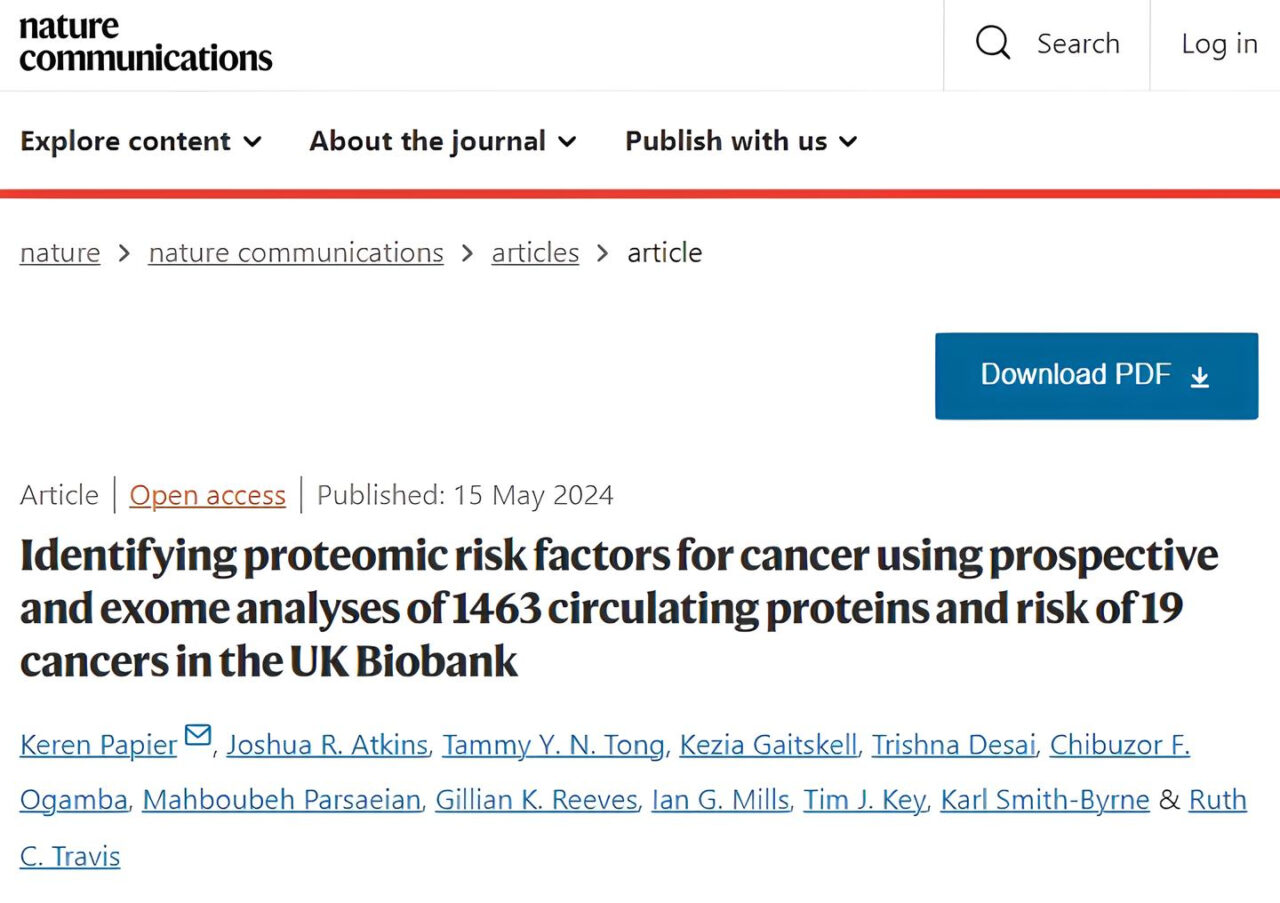Miguel Bronchud, Co-Founder of Regenerative Medicine Solutions, shared on LinkedIn:
“Hope for better selecting individuals at high risk of cancer -therefore ideally targeting better and more tailored screening for early detection of cancer?
A UK large study has discovered multiple associations between blood proteins and cancer risk. Many of these (“multiple associations “) were detectable more than seven years before cancer diagnosis and had concordant evidence from genetic analyses, suggesting they may have a role in cancer development. Their detection is not by itself diagnostic of cancer but only associated with an individual’s increased risk.
Keren Papier, Joshua Atkins, Tammy Tong et al. Identifying proteomic risk factors for cancer using prospective and exome analyses of 1463 circulating proteins and risk of 19 cancers in the UK Biobank. Nat Commun 15, 4010 (2024).
The availability of protein measurements and whole exome sequence data in the UK Biobank enables investigation of potential observational and genetic protein-cancer risk associations. The authors investigated associations of 1463 plasma proteins with incidence of 19 cancers and 9 cancer subsites in UK Biobank participants (average 12 years follow-up). Emerging protein-cancer associations were further explored using two genetic approaches, cis-pQTL and exome-wide protein genetic scores (exGS).
They identify 618 protein-cancer associations, of which 107 persist for cases diagnosed more than seven years after blood draw, 29 of 618 were associated in genetic analyses, and four had support from long time-to-diagnosis ( > 7 years) and both cis-pQTL and exGS analyses: CD74 and TNFRSF1B with NHL, ADAM8 with leukemia, and SFTPA2 with lung cancer.
They present multiple blood protein-cancer risk associations. Many cancer biomarkers identified include protein markers for early detection, progression, recurrence and prognosis, for example, CA-125, CEACAM5, CA19-9 and prostate-specific antigen. Thus significantly raised CEA or PSA levels following primary cancer treatment – in colorectal or prostate cancers respectively – may in fact be suggesting a cancer recurrence or progression.
However, new multiplex proteomics methods allow for the simultaneous measurement of thousands of proteins, many of which have not previously been assessed for their associations with risk across multiple cancer sites.
This interesting and original UK large study used an integrated multi-omics approach combining prospective cohort and exome-variant study designs to identify proteins with a role in cancer etiology: they describe the association of 1463 protein biomarkers quantified using the Olink platform with the risk of 19 common cancers and 9 cancer subsites in 44,645 UK Biobank participants, overall and by time to diagnosis. And significantly they further assess the identified protein-cancer associations as etiological risk factors using exome cis-pQTL variant and exome-wide genetic score analyses (exGS).”
Source: Miguel Bronchud/LinkedIn


